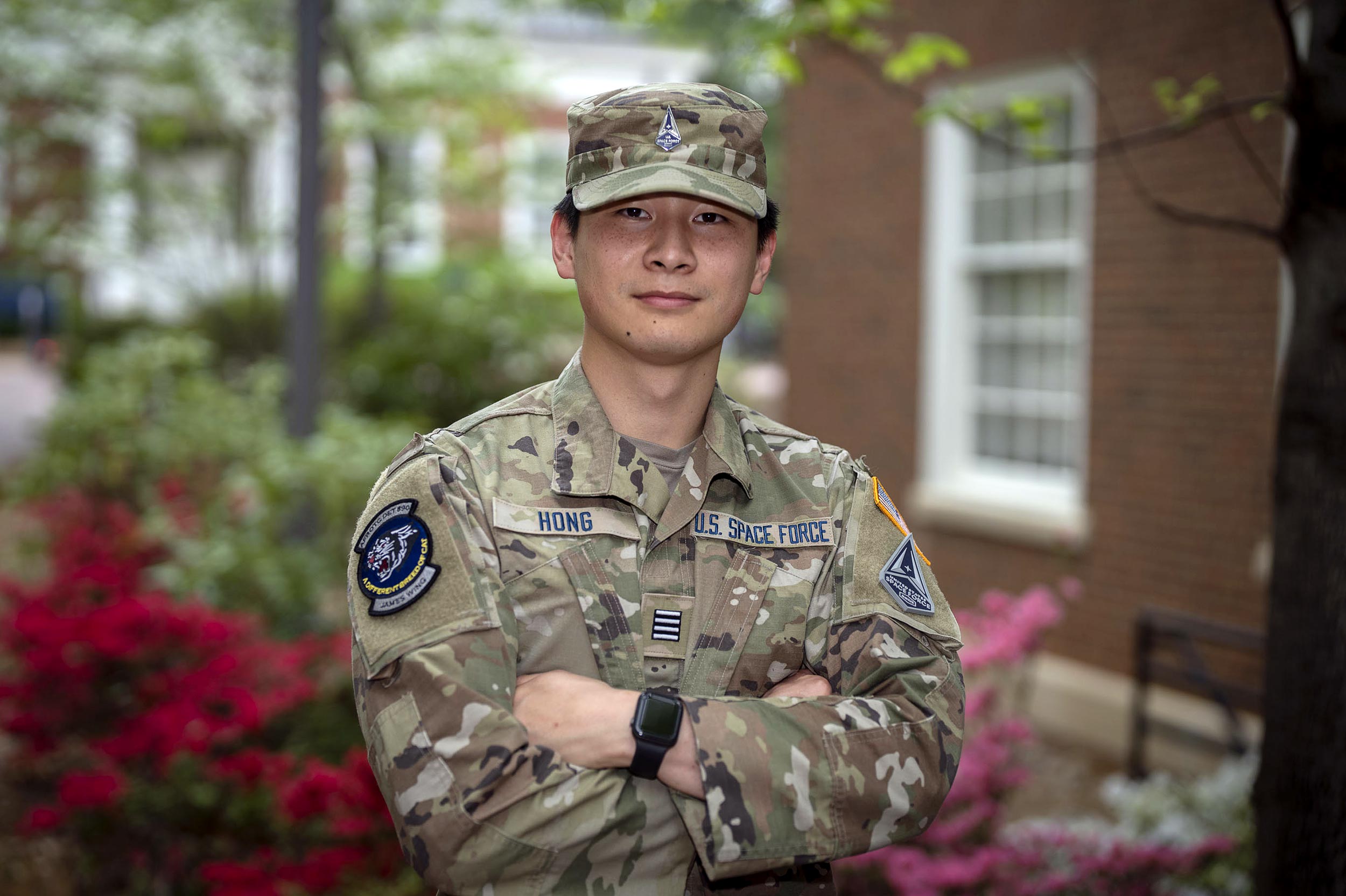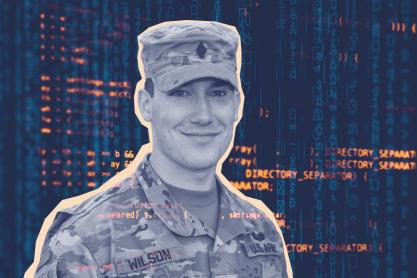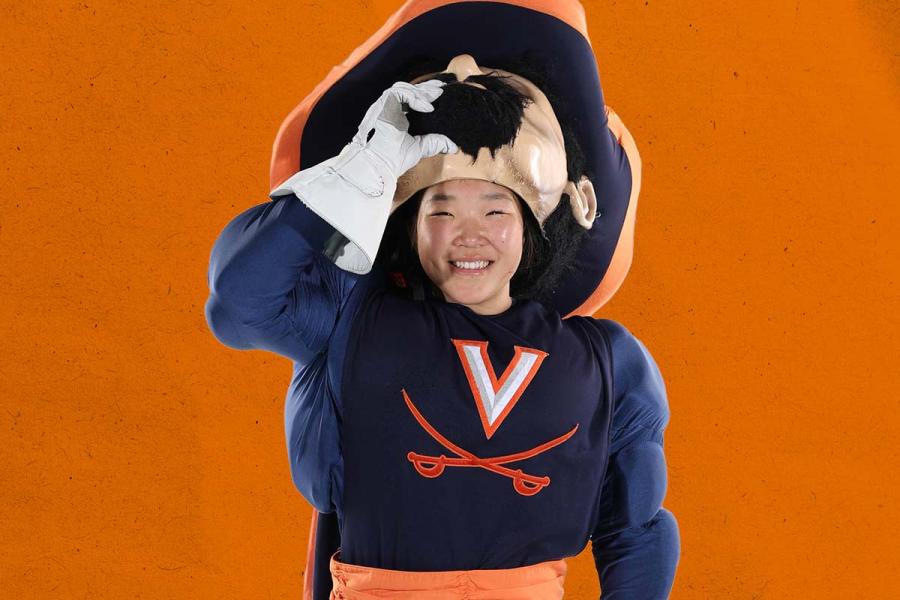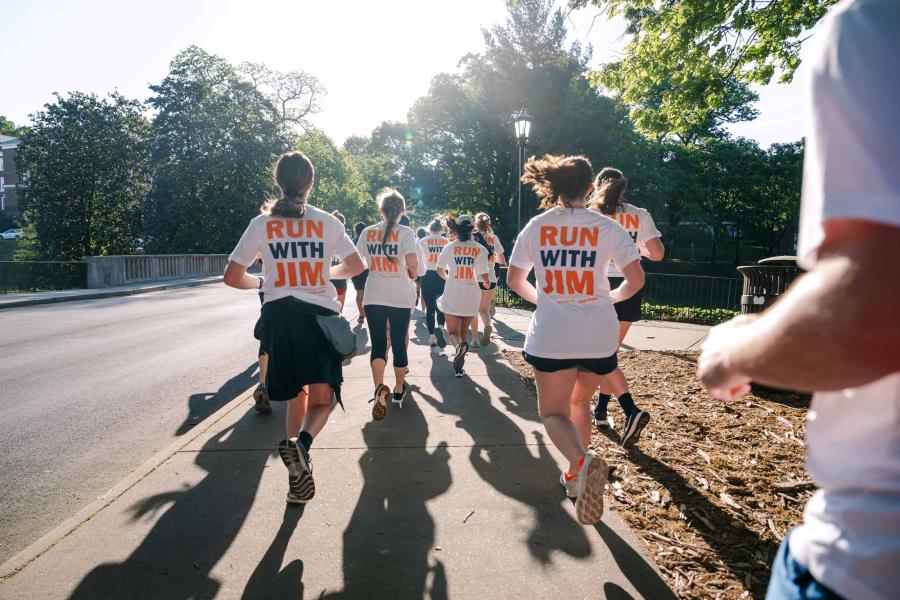Mitchell Hong is going into the Space Force, though he will spend his time in cyberspace rather than outer space.
A University of Virginia Air Force ROTC cadet, Hong is a computer science major who will join the Space Force after he is commissioned and graduates. Hong made his decision while a second-year student in the School of Engineering and Applied Science.
“It’s a new field and I know that they are truly on the cutting-edge side of the military, experimenting with satellites and communication systems,” Hong said. “I figured this was exactly what I wanted to do, and this lines up perfectly with what I am studying.”
Hong is a keyboard guy, not someone who wants to be an astronaut.
“My dream is to learn how to be a good cyberman and defend our satellite systems and all our mission-critical systems,” Hong said. “My friend is actually interested in becoming an astronaut, so he went the whole pilot route.”
Though relatively new, Hong sees Space Force as an indispensable element of modern military operations.
“The United States military relies heavily on our resources in space,” he said. “We are blind without our satellites. And it’s not just our satellites. We have to consider what other countries are trying to do in space. Space is the next domain and like every other domain, whether that’s land, sea or air, Space Force’s mission is to secure our interests.”






